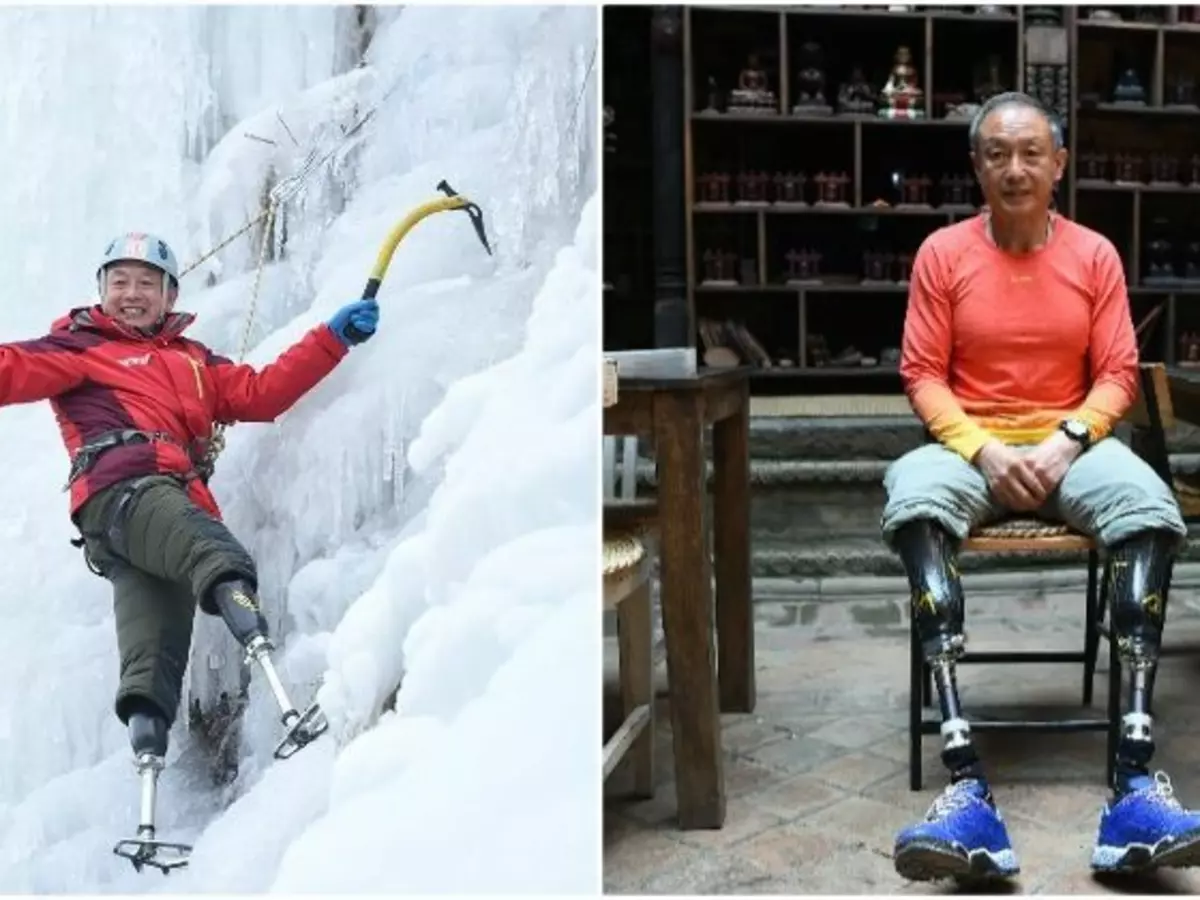A Lesson In Never Giving Up - 69-Year-Old Chinese Climber With No Legs Scales Mt Everest
Xia Boyu 69 summited Everest early Monday in his fifth attempt to reach the top of the 8848-metre 29029-foot mountain. Xia first attempted to summit Everest with a Chinese government-backed team in 1975 but was thwarted by bad weather. He became stuck in the frigid low-oxygen environment near the top and suffered severe frostbite losing both his feet. In 1996 his legs were amputated just below the knee after he was diagnosed with lymphoma a form ...Read More

It is one thing to dream of achieving something, and quite another to actually work towards it and make it to the finish line. It might be scary and daunting but that's exactly what sets winners apart.
A Chinese climber who lost both legs to frostbite on Everest four decades ago finally reached the summit on Monday, just months after the revocation of a controversial ban on double-amputee climbers attempting the world's highest peak.

Xia Boyu, 69, summited Everest early Monday in his fifth attempt to reach the top of the 8,848-metre (29,029-foot) mountain.
"He reached the summit this morning, along with seven other members of his team," said Dawa Futi Sherpa of Imagine Trek and Expedition, who organised Xia's Everest bid.
Xia's dream of standing at the top of the world was nearly thwarted by the Nepal government, which last year banned double amputee and blind climbers from summiting its mountains. The ruling was overturned by Nepal's top court in March, which branded it as discriminatory towards people with disabilities.
Chinese climber, Xia Boyu, 69, who lost both legs to frostbite on Everest four decades ago has finally reached the summit https://t.co/ikAtLWG3FG pic.twitter.com/sHUPNuwoSe
¡ª AFP news agency (@AFP) May 14, 2018
Xia first attempted to summit Everest with a Chinese government-backed team in 1975 but was thwarted by bad weather. He became stuck in the frigid low-oxygen environment near the top of Everest and suffered severe frostbite, losing both his feet.
In 1996 his legs were amputated just below the knee after he was diagnosed with lymphoma, a form of blood cancer. The tenacious climber returned to Everest in 2014 and 2015 but Nepal's climbing season was cancelled both years due to disasters.
Double amputee Xia Boyu reached the summit of Everest on Monday on his fifth attempt climbing the 8,848-metre (29,029-foot) mountainhttps://t.co/ikAtLWG3FG
AFP graphic on the main southern route to the summit of Mount Everest pic.twitter.com/n9WyO3Z6Lc
¡ª AFP news agency (@AFP) May 14, 2018
Bad weather forced him to turn back during his previous attempt in 2016 when he was just 200 metres from the summit. "Climbing Mount Everest is my dream. I have to realise it. It also represents a personal challenge, a challenge of fate," Xia told AFP last month before heading to the mountain.
The only other double amputee to summit Everest is New Zealander Mark Inglis, who achieved the feat in 2006. Xia is among the first of hundreds of climbers expected to summit Everest this month during a narrow window of good weather.
Never give up! Xia Boyu, a double amputee who lost both his legs to frostbite in 1975, became the first Chinese to successfully reach the top of Mount Everest with prosthetic legs on May 14, after four previous attempts across 43 years. pic.twitter.com/UuZOoLWzbP
¡ª People's Daily,China (@PDChina) May 14, 2018
Nepal has issued 346 permits for this year's spring climbing season, which runs from mid-April to the end of May. Most Everest hopefuls are escorted by a Nepali guide, meaning about 700 climbers will try to reach the top in coming weeks.
Double amputee Xia Boyu scaled the world's highest peak #Qomolangma on Monday on his fifth attempt climbing the 8,848-metre mountain. https://t.co/uzmKl2v8hC pic.twitter.com/jjL9T2ArUW
¡ª China Plus News (@ChinaPlusNews) May 14, 2018
Another 180 climbers are preparing to summit Everest from its north side in Tibet, according to the China Tibet Mountaineering Association. Last year, 634 people made it to the top and seven died trying.
